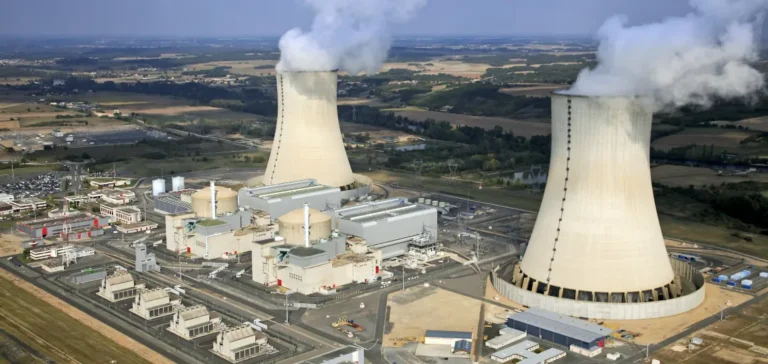Electricity production in France saw a temporary reduction of 1.1 gigawatts following the launch of a nationwide labour strike, according to data published by Électricité de France (EDF). The Flamanville 1 reactor, located in the north-west of the country, was partially shut down by workers participating in the industrial action.
The remainder of France’s nuclear fleet continued operations without further disruption. Hydropower output, which represents a complementary share of the country’s energy mix, remained unaffected, according to the figures released. EDF did not provide an estimate of how long the reduction would last or the potential scope of its effects on power supply.
Limited impact on the nuclear fleet
France currently has an installed nuclear capacity of 57 gigawatts, which covers approximately 70% of its annual electricity production. The current industrial action, though symbolic, affected only a single facility, indicating a partial mobilisation in the energy sector.
Such union-led actions are frequently used as leverage in key strategic industries. In this instance, the immediate impact on grid stability remains contained, although any drop in nuclear production is closely monitored due to its importance in maintaining national supply balance.
Context of the labour action
The ongoing strike affects multiple sectors at the national level, beyond the energy industry. Several trade union organisations have issued mobilisation calls, with no indication yet on how long the disruptions might last. Similar reductions in nuclear power output have occurred during previous social movements, especially during disputes over public sector reforms or wage negotiations.
The Flamanville site, which also hosts the under-construction EPR (European Pressurised Reactor) still in testing phase, is frequently a focal point for labour actions in the energy sector. No information was provided regarding any extension of production cuts to other facilities.






















